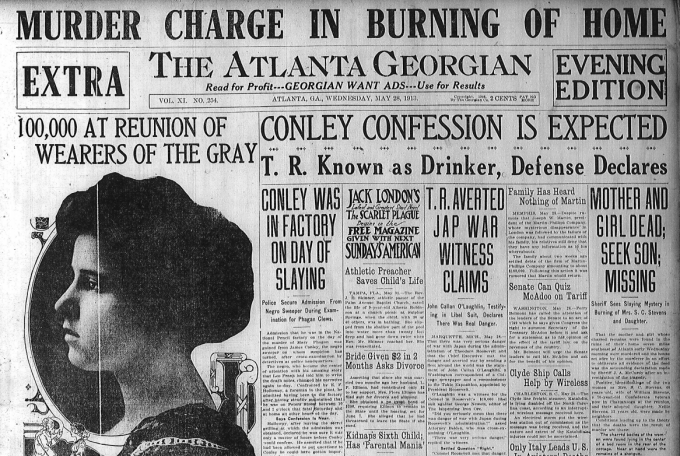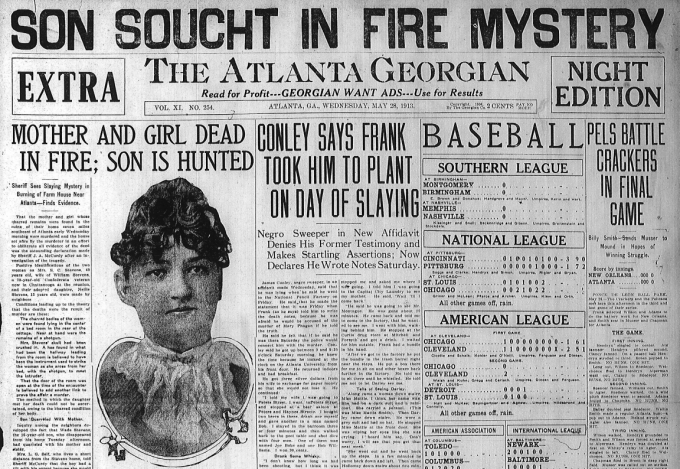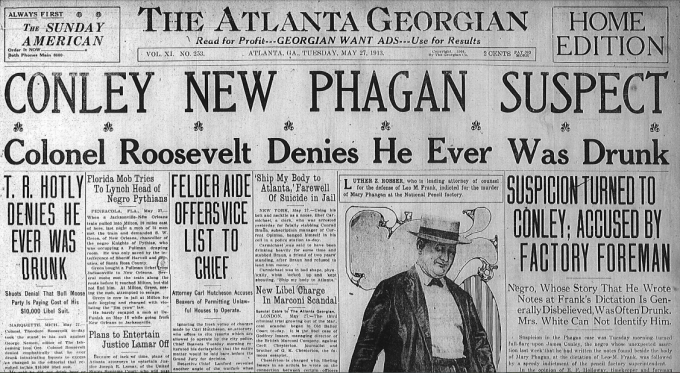Another in our series of new transcriptions of contemporary articles on the Leo Frank case.
Atlanta Constitution
August 7th, 1913
Following Conley’s departure from the stand the jury was allowed a five minute recess and on their return Solicitor Dorsey tendered in evidence a picture of the pencil factory basement which was taken by Francis B. Price, The Constitution staff photographer on the morning that the body was found a [1 word illegible] of which appeared in The Constitution. He also tendered a scratch pad sample of one of those around the factory the murder notes and the pad found near the body.
There were no objections from the defense.
“Bring in C. B. Dalton,” called out the solicitor. Dalton is the man named by Conley as having gone into the factory with Frank when the latter chatted with women and had Conley act as lookout. Dalton took his place on the stand but was excused because the judge had not made his final decision with reference to the protested Conley testimony and Mrs. John Arthur White was called in.
Conley was brought back and Mrs. White was asked if he was the negro she claimed to have seen on April 26 concealed behind some boxes on the first floor of the factory.
She could not say that he was or was not but declared that he looked more like the man than anyone else she had seen and that he was about the same statue. The defense entered frequent objections while this was being brought out.
“Mrs. White,” the solicitor then asked, “on April 28 didn’t you tell your brother Wade Campbell, an employee of the pencil company that you had seen a negro there on the previous Saturday?”
Mr. Rosser objected.
Continue Reading →







